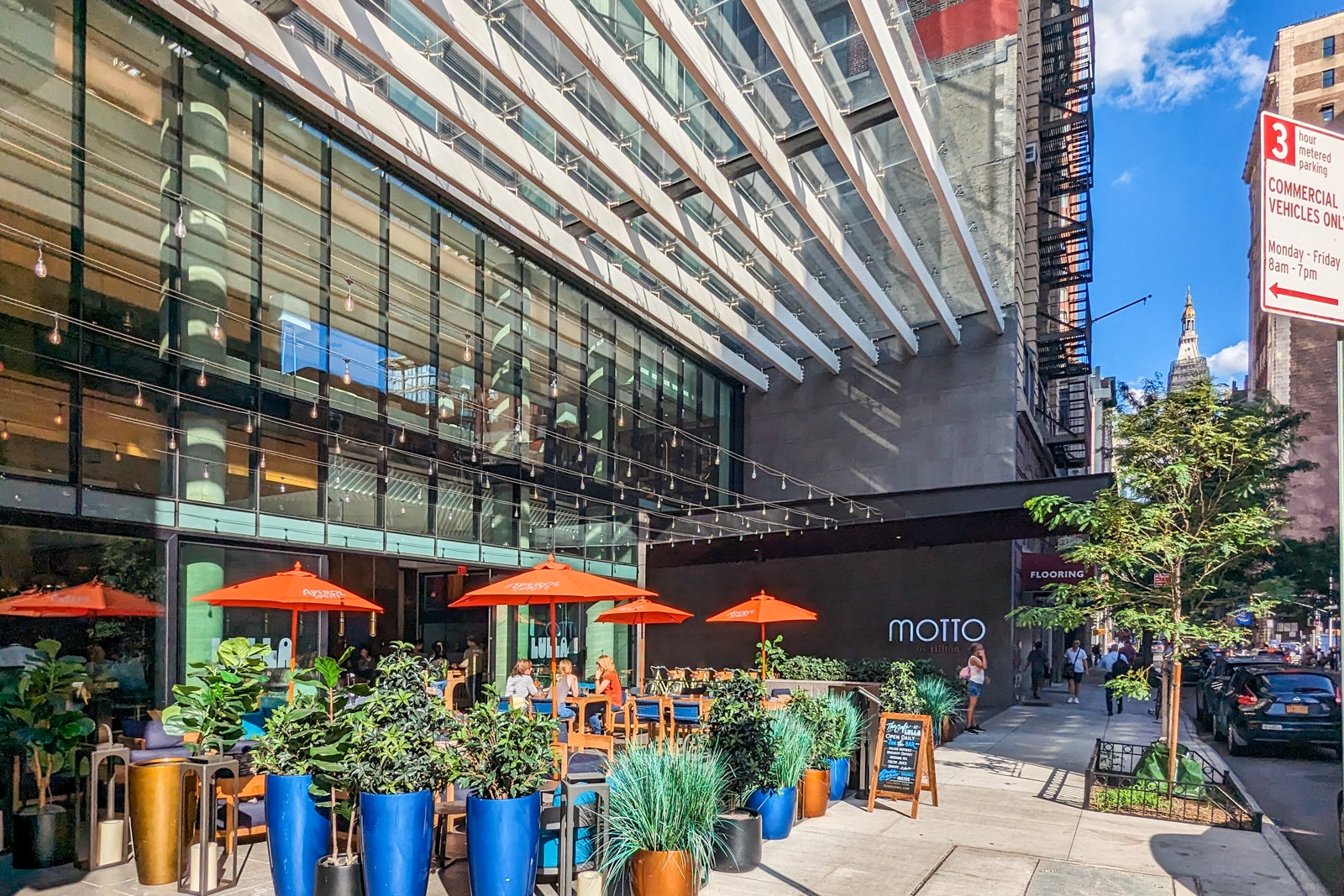Hilton, Airbnb brace for softening travel demand. Here’s how to benefit – The Points Guy

Lodging brands like Hilton and Airbnb aren’t exactly hurting for cash these days, but there are signs it’s about to be lights out on the post-coronavirus pandemic boom of sky-high rates and an unlimited pool of people willing to pay.
Hilton this week reported a $422 million profit for the second quarter, while Airbnb’s profit clocked in at $555 million for the same timeline. Both companies, while tending to different types of travel, reported robust demand in the lead-up to the midyear report.
The week of July Fourth was the highest revenue week ever for Airbnb in North America. At Hilton, the company is riding high on the return of business and group travel demand — echoed by leaders at competitors Marriott and Hyatt in recent days — as well as the integration of newly acquired brands like Graduate Hotels and NoMad and fresh partnerships with AutoCamp and Small Luxury Hotels of the World.
But there are warning signs out there, too.
Airbnb’s stock price tumbled after its earnings report this week cautioned a slowdown in bookings is likely through fall due to “shorter booking lead times globally and some signs of slowing demand from U.S. guests.” Further, while he wasn’t hitting the panic button, Hilton CEO Christopher Nassetta noted this week on a company earnings call that there are “softer trends in certain international markets and normalizing leisure growth” before later adding “It’s not cratering in any way. It’s just soft.”
The sentiment echoes similar trends outlined in Hyatt and Marriott earnings calls. Hyatt CEO Mark Hoplamazian noted the company expected a slower demand through fall before picking up steam again around the holiday travel season.
Daily Newsletter
Reward your inbox with the TPG Daily newsletter
Join over 700,000 readers for breaking news, in-depth guides and exclusive deals from TPG’s experts
So, what does that mean for you?
While it’s highly unlikely companies are going to start massively discounting hotel rates or vacation home rental stays, there are likely to be some degree of promotions to generate demand. You can already find that in the luxury hotel sector, where ultra-luxe hotels like Raffles Boston offer third-night-free promotions to guests.
It’s not out of the realm of possibility to see more of this — or outright rate cuts — trickle into other segments of the hotel market, especially in more affordable tiers, where brands have been struggling in light of a budget hotel downturn. Choice Hotels, the parent company of brands like Cambria and Comfort, offers as much as a 25% discount on stays of two nights or longer during its ongoing summer sale.
Don’t get too excited by the idea of overall rate discounts. The mantra coming out of the pandemic was hotels were reluctant to cut rates too much or else they ran the risk of not being able to get them back to normal pricing. Further, rate discounts weren’t leading to busier hotels during the health crisis.
But in normal times, it’s not out of the question to see hotel rates come down to stimulate travel. The latest inflation data from the U.S. shows hotel rates are down roughly 3% from a year ago. That’s not necessarily felt everywhere, but it does show hotel owners are willing to cut prices to win your business back — especially with tougher economic times potentially on the horizon.
If you do your homework, you might be able to save some money on a last-minute fall getaway to your favorite hotel or Airbnb.
Related reading:
Related
Turkish Airlines and Qatar Airways Suspend Mogadishu Flights Following US…
Home » Airlines News of Qatar » Turkish Airlines and Qatar Airways Suspend Mogadishu Flights Following US Embassy Terror Alert, Raising Security Concerns at
Local tourism destinations grow fast
Men sit at the Doha Corniche backdropped by high buildings in Doha on March 3, 2025. Photo by KARIM JAAFAR / AFP DOHA: Local tourism destinations are g
Hajj, Umrah service: Qatar Airways introduces off-airport check-in for pilgrims
Image credit: Supplied Qatar Airways has introduced an off-airport check-in
IAG, Qatar Airways, Riyadh Air, Turkish Airlines, Lufthansa & more…
Turkish Airlines – a Corporate Partner of the FTE Digital, Innovation & Startup Hub – is charting a course to rank among the top 3 global airlines for












